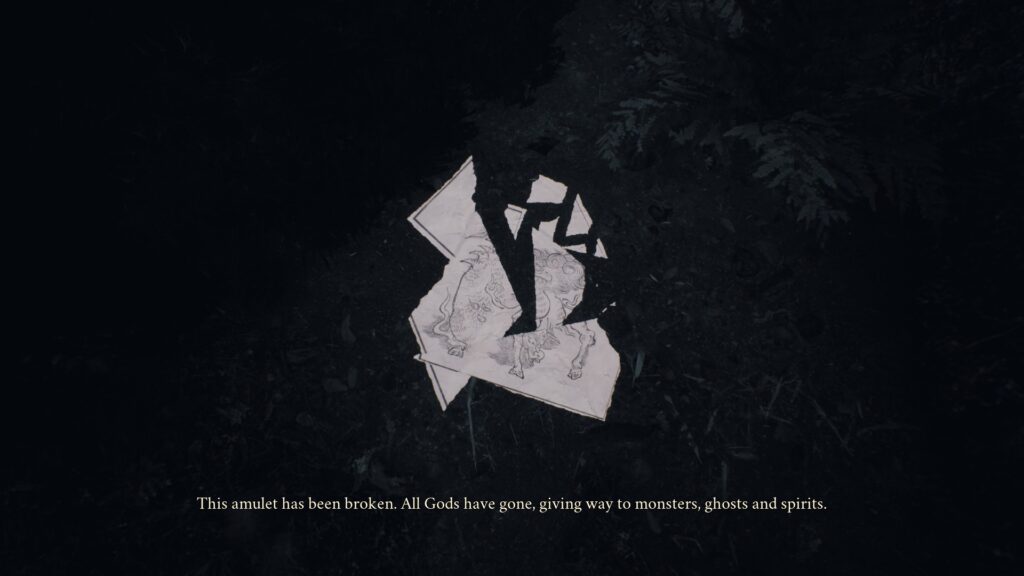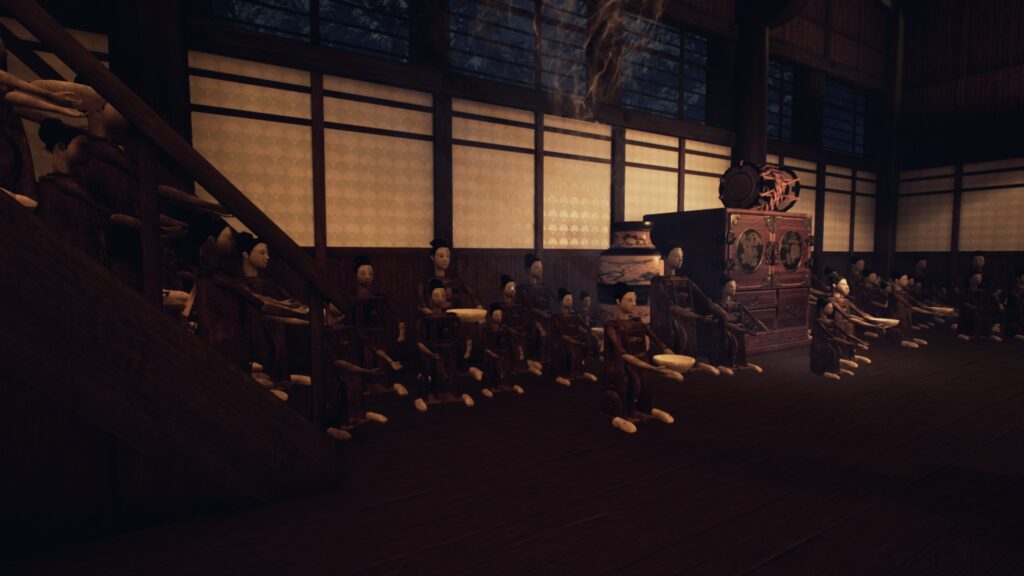Ikai bills itself as a psychological horror game, which is strange because its first half is an autumn carnival of gratuitous jump scares. It’s not until roughly Ikai‘s halfway point that it gets more interesting, as it shifts into a surreal character drama.
It’s enough to make me wonder if it’s the result of two different projects getting stitched together for release or if there was some executive interference somewhere along the line. The first two hours of Ikai run off pure shock value, like it was made specifically so streamers could comically overreact to it, but the last three are where it gets slower and much creepier.
It makes Ikai tricky to recommend. I’d argue it’s worth getting through the first stretch to break into the second, especially if you’re a die-hard horror fan, but its narrative has an identity crisis.

All Alone and an Easy Target
Ikai (“underworld,” roughly) occurs during an indeterminate point in feudal Japan. You play as Naoko, a novice priestess who leaves her shrine one afternoon to do the laundry and stumbles upon the aftermath of a dark ritual. Someone has cursed the shrine, and by the time she makes it back, it’s been overrun by monsters. Her uncle, the shrine’s priest, is out of town, so Naoko’s the only one who can do anything about it.
Most of Ikai is a standard run-and-hide formula, where Naoko has to stay alive and undetected for long enough to figure out how to do something about the monster currently hunting her.

If you screw up, you get hit with some of the gnarliest death scenes that I’ve seen in a while, where some Japanese folk demon suddenly gets right up in your face while it kills you. I had to play the first couple of hours in 20-minute intervals because if there’s one thing Ikai knows, it’s how to give you a heart attack.
In a neat feature, you can defeat monsters by creating simple ofuda talismans by hand-writing the characters on paper at one of the writing desks found throughout the shrine. These talismans can be used on specific objects to defeat whatever’s currently on your case, but you usually get ganked if you take too long to make them.

Being forced into a calligraphy challenge with death on the line is a weird enough experience that I wish it made up more of Ikai‘s overall run time. But you really only do it five or six times throughout the game.
However, that overall approach is enough to create an oppressive air of tension, even when nothing’s actually happening. Ikai conditions you to be wary of everything early on, as it’s not afraid to throw random jump scares at you just to keep you off-balance. It does settle down a little bit at the halfway point, but that’s also when it starts to get weird.

The Actual Game Part
There’s a lot about actually playing Ikai that feels like a throwback. With its relatively simple graphics, overall lack of music, and minimalist UI, it feels like a lost game from the PlayStation 2 B-list, which is not an insult.
It’s also got a high dose of old-school adventure game logic compared to most other games I’ve played this year. Ikai is aggressively uninterested in holding your hand. It rarely tells you what to do or where to go.
Some of its puzzles and obstacles require a working knowledge of Japanese tradition to figure out—there’s one early on that I only got because I’d just finished Ghostwire: Tokyo, so I knew what a Shinto offering box looks like—while others have “hints” that are comprised of total moon logic.

Your first run through Ikai is likely to take about five hours, and you can count on spending half of that staring at a combination lock or jewel puzzle, trying to figure out how the hell you’re supposed to know what to do. A big part of the rest will likely be spent on the lengthy stealth mission at roughly the game’s halfway point.
If you can get through that, Ikai is worth completing. Many games don’t stick their landing, but Ikai’s biggest overall problem is arguably its messy start. Once it’s more concerned with Naoko herself and less with random monsters jumping out to eat your virtual face, Ikai settles down into a short, memorable run to the end that’ll stick with you for a while.


